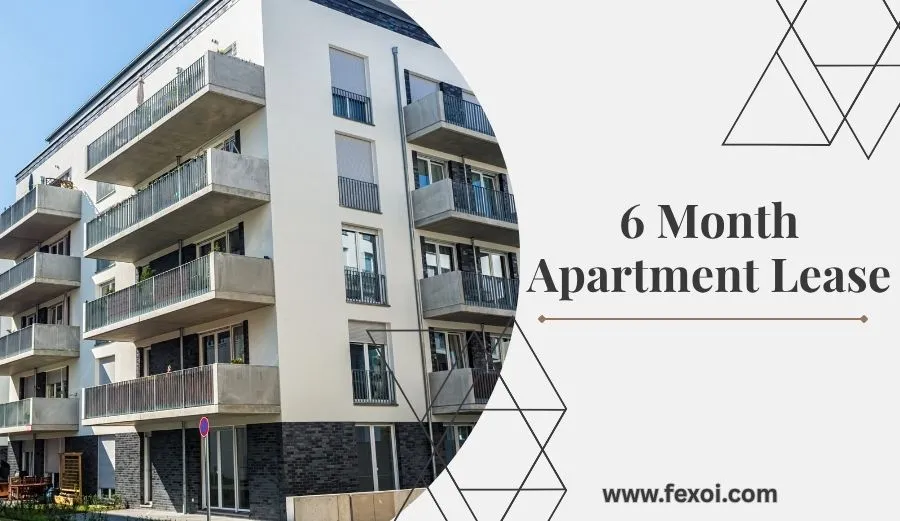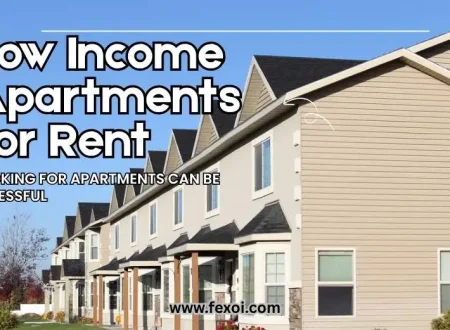Finding a place to live doesn’t always mean signing a 12-month contract. For many renters, a 6 month apartment lease offers a perfect blend of flexibility, stability, and short-term commitment. Whether you’re relocating for work, navigating a life change, or simply testing out a new neighborhood, a 6 month apt lease can meet your needs without tying you down for too long.
In this guide, we’ll explore the benefits, drawbacks, and everything else you need to know about short-term leases so you can decide if a six-month rental is right for you.
What Is a 6 Month Apartment Lease?
A 6 month apartment lease is a rental agreement that gives tenants the right to live in a unit for six months. Unlike traditional 12-month leases, this shorter contract is ideal for people who don’t want or need a long-term commitment. While more structured than month-to-month arrangements, it still offers flexibility for temporary stays.
This type of lease is commonly offered in furnished apartments, corporate housing, or buildings with high turnover. However, it’s not always widely advertised, so renters often need to ask specifically if six-month options are available.
Who Should Consider a 6 Month Apt Lease?
1. Relocating for Work or Projects
If your job requires you to stay in a new city for a few months or you’re working on a temporary assignment, a six-month lease gives you housing without long-term hassle. It also allows time to focus on your role without being tied down to unfamiliar surroundings permanently.
2. Trying Out a New City
Before committing to a new area, many renters like to “test drive” the neighborhood. A six-month lease allows you to explore the surroundings, assess your commute, local amenities, and overall vibe—helping you make a confident long-term decision later.
3. Transitioning Between Homes
Waiting for a house to close? Moving out of a dorm? A 6 month apartment lease provides a flexible buffer during major transitions. It can also reduce the pressure of finding permanent housing quickly and lets you move at your own pace.
4. Students and Interns
Many college students, interns, or co-op workers need shorter leases that match their academic or internship schedule. A six-month term aligns perfectly with many semester systems, giving them affordable housing without the burden of paying for unused time during breaks.
Benefits of a 6 Month Apartment Lease
There are several advantages to choosing a shorter lease term:
1. Flexibility
One of the biggest perks of a six-month lease is the ability to change your living situation sooner. This is especially helpful for people in flux or who aren’t ready to settle down. Whether you’re dealing with job uncertainty or personal changes, the shorter term gives you room to adapt.
2. Less Commitment
Not everyone wants to live in one place for a year. A 6 month apt lease allows you to meet your current needs without overcommitting your time or finances. It’s ideal for those seeking housing that matches a transitional lifestyle.
3. Faster Upgrades
If you’re not in love with the apartment, building, or area, six months goes by fast. You can move on to a better option when your lease ends. This is a major benefit for renters still exploring their preferences or improving their budget.
4. Corporate or Furnished Options
Many short-term rentals come furnished and include utilities, making them ideal for people who want a move-in ready solution without buying furniture. These options are perfect for professionals on assignment or those who want a minimalist, no-fuss setup.
Downsides to a 6 Month Apt Lease
While flexibility is great, there are also some drawbacks to keep in mind:
1. Higher Rent
Short-term leases often come with a price premium. Landlords may charge more for the convenience of a shorter stay. This additional cost helps cover risks like faster tenant turnover, frequent vacancy periods, and increased maintenance between renters. Renters should budget accordingly.
2. Limited Availability
Not every apartment complex offers six-month leases. You may need to search harder or negotiate with landlords directly. These leases are more common in urban markets, student housing, or corporate apartments, but can be harder to find in suburban or competitive areas.
3. Lease Renewal Uncertainty
There’s no guarantee you’ll be able to renew your lease after six months. If you want to stay, you might face higher rent or a longer contract. Landlords may prioritize long-term tenants or increase rent to match market trends, leaving you with few options.
4. More Frequent Moving
With shorter stays, you’ll likely move more often, which can be expensive and exhausting over time. Costs like hiring movers, utility transfers, cleaning fees, and time lost from work can quickly add up—both financially and mentally—making it a less convenient option long-term.
What to Ask Before Signing a 6 Month Lease
Before you commit, ask the following questions to make sure the lease fits your needs:
- Is the rent higher for a six-month term?
- Are utilities included?
- Is the apartment furnished?
- What are the renewal options?
- Is there a penalty for early termination?
- Will I need to reapply and pay fees to extend?
These questions can help you avoid surprises and plan for the future.
How to Find a 6 Month Apartment Lease
While not always listed online, many apartments still offer six-month leases upon request. Here are some tips:
1. Use Apartment Search Filters
Sites like Zillow, ApartmentGuide, or Rent.com allow you to filter by lease length. Be sure to use terms like “short-term” or “6-month lease” for best results.
2. Contact Property Managers Directly
Even if not advertised, some properties are willing to offer flexible terms to fill vacancies quickly. A direct call or email could uncover hidden availability or negotiable options.
3. Look at Corporate Housing
These rentals often come fully furnished and are designed for short-term occupancy. They’re ideal for professionals, traveling nurses, and people between homes.
4. Consider Subletting
In many cities, tenants with longer leases sublet for shorter periods. Subletting can be a smart alternative to traditional leases—especially during school breaks or off-peak seasons. Just make sure it’s legal and approved by the landlord.
6 Month Lease vs. 12 Month Lease: A Quick Comparison
| Feature | 6 Month Lease | 12 Month Lease |
| Commitment | Short-term | Long-term |
| Monthly Rent | Often higher | Typically lower |
| Flexibility | High | Low |
| Availability | Limited | Widespread |
| Best For | Temporary stays, transitions | Stability and long-term planning |
Are 6 Month Apartment Leases Worth It?
The Value of a 6 Month Apt Lease
The value of a 6 month apartment lease depends on your specific situation. If you need flexibility, are relocating for work, or simply testing out a new city, a short-term lease is often worth the premium. It’s ideal for students, contract workers, or anyone in a transitional phase. On the other hand, if your priority is lower rent and housing stability, a traditional 12-month lease may be the better route.
Pros and Cons Summary
Pros:
- Greater flexibility
- Lower long-term commitment
- Perfect for transitional periods
- Option to upgrade or change housing after 6 months
- Ideal for job relocations, internships, or short-term projects
Cons:
- Higher monthly rent compared to long-term leases
- Fewer available units offer short-term options
- Lease renewal could be uncertain or come with new terms
- More frequent moving hassles and associated costs
Tips for Negotiating a 6 Month Lease
- Ask for rent flexibility: If a unit has been vacant, landlords may waive the short-term premium.
- Request bundled utilities: This simplifies budgeting and can help you avoid fluctuating monthly expenses.
- Negotiate extension options upfront: If there’s a chance you’ll want to stay longer, try locking in renewal terms early.
- Offer to prepay: If financially feasible, offering a few months’ rent upfront may strengthen your bargaining position.
- Highlight your reliability: A solid credit score and rental history can help convince landlords to approve your short lease request.
FAQs About 6 Month Apartment Leases
Is a 6 month lease more expensive?
Usually, yes. Rent is often higher to compensate for the short-term stay, but it depends on the property and market.
Can I break a 6 month lease early?
You may face penalties unless the lease includes an early termination clause. Always read the agreement carefully.
Do all apartments offer 6 month leases?
No. Availability varies by city, season, and property management. Always ask directly.
Are furnished options available for short-term leases?
Yes. Many six-month leases include furniture and utilities, especially in corporate housing setups.
Conclusion:
A 6 month apartment lease is a solid choice for renters who want flexibility, are in transitional periods, or simply don’t want to commit to a full year. While it can come with higher rent and fewer available options, the convenience and adaptability it offers often outweigh the cons—especially for people with changing life plans.
Whether you’re relocating, starting a new job, or testing out a neighborhood, a 6 month apt lease offers the freedom to live on your terms. Just be sure to ask the right questions, read the fine print, and plan your next move before the lease runs out.







